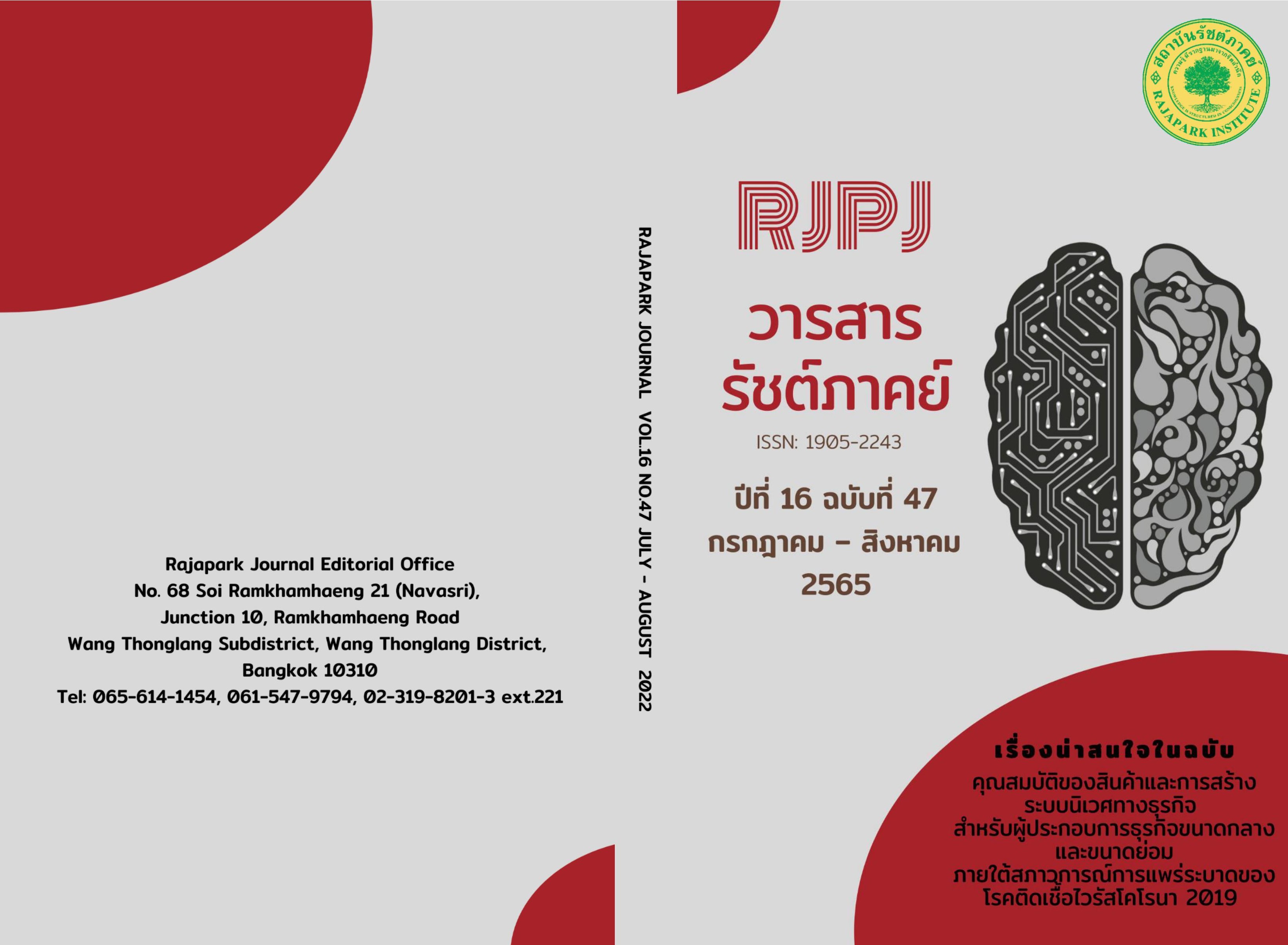A Model of School Administration in Coronavirus Disease 2019 Crisis under Bangkok Metropolitan Administration
Main Article Content
Abstract
The objectives of this research were 1) to analyze the condition and elements of educational institution administration during the Coronavirus 2019 crisis; and 2) to develop and assess the educational institution administration model during the Coronavirus 2019 crisis for schools affiliated with Bangkok Metropolis. The sample group consisted of the director and deputy director. And the head of the subject group in Bangkok schools, of 509 people and 9 experts. The tools used to collect the data were a questionnaire and suitability assessments of feasibility, accuracy, and utilization. The statistics used to analyze the data were averages, standard deviation, and corroborative component analysis. The results of the research were as follows: 1) The state of educational institution administration during the Coronavirus 2019 crisis for Bangkok Metropolis schools. The overall picture was at a high level. In terms of prevention and mitigation, the practice was at the highest level, followed by disaster preparedness. Crisis Management and post-crisis management; 2) The results of the corroborative component model analysis of educational institution management during the coronavirus crisis consisted of 4 components. The component with the highest component weight was prevention and mitigation, followed by disaster preparedness, crisis management, and post-crisis management; and 3) The results of the suitability assessment. The feasibility, accuracy, and overall usability were at the highest level.
Article Details

This work is licensed under a Creative Commons Attribution-NonCommercial-NoDerivatives 4.0 International License.
Views and opinions appearing in the Journal it is the responsibility of the author of the article, and does not constitute the view and responsibility of the editorial team.
References
Cronbach, L.J. (1970). Essentials of Psychological Test (5th ed.). Harper Collins.
Duangchuen, P (2020). The New Normal in Educational Administration After the COVID-19 Crisis. Journal of Arts Management, 4(3), 783-795.
Dutton, J.E. (1986). The Processing of Crisis and Non-Crisis Strategic Issues. Journal of Management Studies, 23(5), 501-517. https://doi.org/10.1111/j.1467-6486.1986.tb00434.x
Intarakamhang, U., & Thongpakdee, T. (2010). Effects of the Eastern Self-Management of Crisis Management Approaches on Life Crisis and Happiness of Middle-aged Married Thai Women in Bangkok. Srinakharinwirot University.
Karnjanapun, R. (2020). School Administration in the Crisis Situation of the Coronavirus 2019 (COVID-19). Ph.D. in Social Sciences Journal, 10(2), 545-556. DOI: 10.14456/phdssj.2020.41
Long, R.K. (2001). Seven Needless Sins of Crisis (Mis) Management. PR Tactics.
Naikowit, T. (2014). Issue and Crisis Management (2nd ed.). Bangkok University. http://bupress2.bu.ac.th/ebook/comart/pr404_thanawut.n.pdf
Office of the Education Council, Ministry of Education. (2017). National Education Plan 2017 - 2036. Phrikwarn Graphic.
Office of the Public Sector Development Commission. (2020, May). Business Continuity Management : BCM. file:///C:/Users/HP/Downloads/%E0%B8%84%E0%B8%B9%E0%B9%88% E0%B8%A1%E0%B8%B7%E0%B8%AD_BCM_2020_v7(2).pdf
Perathoranich, C. (2020). Challenges of Educational Management in the Disruptive Change Era of School Administrators. CMU Journal of Education, 4(2), 126-139.
Sararattana, W. (1999). Administration, Principles, Theories and Educational Issues. Thipwisut.
Shatnataphat, C. (2020). Crisis Organization Management Case Study: COVID-19 Viral Infection. Dhammathas Academic Journal, 20(4), 197-207.
Smith, D. (1990). Beyond Contingency Planning: Toward a Model of Crisis Management. Industrial Crisis Quarterly, 4(4), 263-275.
Smith, D. (2005). Business (Not) as Usual: Crisis Management, Service Recovery and the Vulnerability of Organizations. Journal of Services Marketing, 19(5), 309-320.
Sullivan, J. (2012, January 16). VUCA: The New Normal for Talent Management and Workforce Planning. https://www.ere.net/vuca-the-new-normal-for-talent-management-and- workforce-planning/
Suteetorn, B. (2020). Managing Crisis Communications in a Volatile, Uncertain, Complex, and Aambiguous World. Executive Journal, 40(2), 130-143.
UNICEF Thailand, and Ministry of Education Thailand. (2020, April). Guidance for COVID-19 Prevention and Control in Schools. https://www.unicef.org/thailand/media/4066/file


